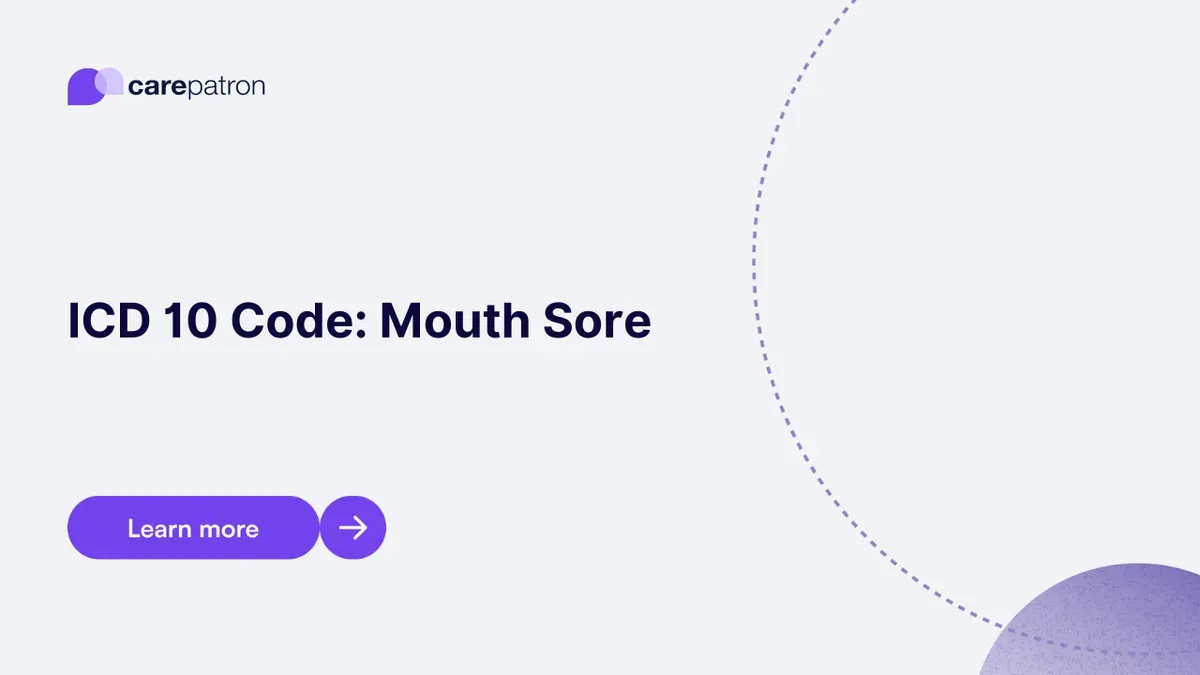
Mouth Sore ICD-10-CM Codes
Explore ICD-10-CM codes for Mouth Sores. Learn about common codes and billable statuses, and gain clinical insights in this comprehensive guide.
Use Code
Commonly asked questions
Most mouth sores, such as canker sores, are not contagious. However, some oral ulcers caused by viral infections, like herpes simplex, can be infectious through direct contact.
Yes, mouth sores can be a symptom of underlying conditions such as autoimmune disorders (e.g., Behçet's disease), vitamin deficiencies, or gastrointestinal diseases.
Over-the-counter topical gels or ointments can provide relief. Avoiding spicy or acidic foods, practicing good oral hygiene, and using a soft toothbrush can also help manage discomfort. If mouth sores persist or are severe, consult a healthcare professional for evaluation and treatment.
EHR and practice management software
Get started for free
*No credit card required
Free
$0/usd
Unlimited clients
Telehealth
1GB of storage
Client portal text
Automated billing and online payments
